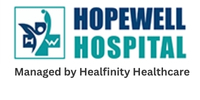Food poisoning is a widely encountered public health issue affecting millions globally every year. Understanding this common ailment is crucial since it helps in the swift identification and management of symptoms. Spotting the signs early and knowing the basics of food poisoning treatment can prevent severe discomfort and complications. This guide aims to equip you with the knowledge to self-diagnose food poisoning symptoms, utilize prevention strategies, and understand when to seek medical guidance. Whether you have encountered foodborne diseases before or not, this guide will serve as a helpful resource.
Recognizing the Signs and Symptoms of Food Poisoning
Food poisoning symptoms can appear unexpectedly after consuming contaminated food or water. They often start with mild discomfort and can include stomach cramps, nausea, vomiting, and diarrhea. These food poisoning signs typically begin within a few hours but can also take days to appear.
It’s important to differentiate these symptoms from other illnesses like the flu or an upset stomach. Food poisoning diagnosis hinges on recognizing patterns: symptoms usually hit several diners who shared a meal, they often appear suddenly, and they involve gastrointestinal distress.
Here’s a quick checklist for a basic food poisoning diagnosis:
- Onset: Did symptoms appear abruptly?
- Duration: Are symptoms persisting longer than a couple of days?
- Consistency: Do others who shared a meal feel the same?
A healthcare professional, Dr. Jamie Smith, underscores the importance of early recognition: “Spotting food poisoning symptoms early can help prevent worsening discomfort and avoid complications.”
Knowing when to seek medical attention is vital. If symptoms are severe or prolonged, such as persistent vomiting, severe dehydration, or a high fever, it’s essential to go to a doctor. Prompt action ensures timely food poisoning treatment and can prevent further complications.
Immediate Home Treatment and When to Seek Medical Help
At the onset of food poisoning symptoms, immediate home remedies can bring relief. Here are essential steps:
- Maintain Hydration: Drink water or electrolyte solutions to prevent dehydration.
- Rest: Allow your body to recover by lying down and avoiding physical activities.
- Eat Light: Gradually reintroduce bland foods like toast or crackers when able to hold down food.
Knowing when to seek professional help is crucial. Seek medical attention if symptoms include severe abdominal pain, prolonged vomiting, or blood in stools. Dr. Linda Green advises, “While mild cases resolve on their own, persistent symptoms need a doctor’s advice.”
When visiting a healthcare provider, be prepared with these questions:
- What should I eat during recovery?
- What medications are safe to take?
- Are there signs of serious food poisoning complications I should watch for?
Personal stories highlight the importance of timely food poisoning treatment. For instance, Jane, a mother of two, shared, “I ignored my symptoms thinking they’d pass, but ended up needing an IV for dehydration.” Jane’s experience serves as a reminder that seeking help sooner rather than later can prevent serious outcomes.
Prevention and Minimizing Risk in the Future
Preventing food poisoning involves understanding and practicing good food hygiene habits. Here’s how you can minimize future risks:
- Wash Hands: Always wash hands thoroughly before and after handling food.
- Cook Thoroughly: Ensure meat and eggs are cooked fully to kill harmful bacteria.
- Separate Surfaces: Avoid cross-contamination by using different cutting boards for raw meat and vegetables.
Particular attention should be paid to high-risk groups such as young children, pregnant women, and the elderly due to their vulnerability. Tailored tips include avoiding raw seafood and unpasteurized products.
Long-term neglect of food poisoning prevention can result in immune system issues or chronic illnesses. Nutritionist Emily White notes, “By ignoring simple hygiene practices, people risk not just immediate discomfort, but long-term health complications.”
Practical prevention methods are backed by data suggesting up to half of all food poisoning cases can be prevented through proper food handling and storage. So, being diligent about cleanliness and being cautious about what you consume can significantly reduce risks.
In conclusion, while food poisoning is unpleasant, being informed helps in quick recovery and minimizing future occurrences. Understanding food poisoning signs and having knowledge of food poisoning treatment options ensures you are better prepared. Whether you’re at home or dining out, staying vigilant and practicing precautions are key in safeguarding your health. This comprehensive guide empowers you to recognize, respond to, and prevent foodborne illnesses effectively.
Food poisoning is a common illness caused by consuming contaminated food or water, leading to symptoms like nausea, vomiting, diarrhea, and abdominal pain. While most cases resolve on their own, severe food poisoning can lead to dehydration and other complications that may require medical attention. If you’re experiencing persistent symptoms or worsening health, it’s important to seek prompt medical care.
Hopewell Hospital offers expert diagnosis and treatment for food poisoning, ensuring you get the care you need to recover quickly.
Don’t wait—consult Hopewell Hospital today for effective treatment and relief from food poisoning.

